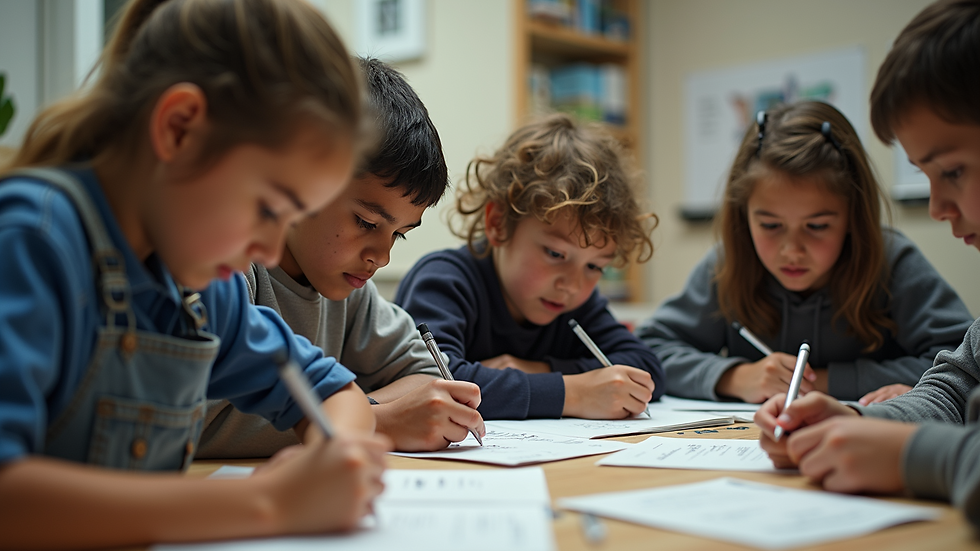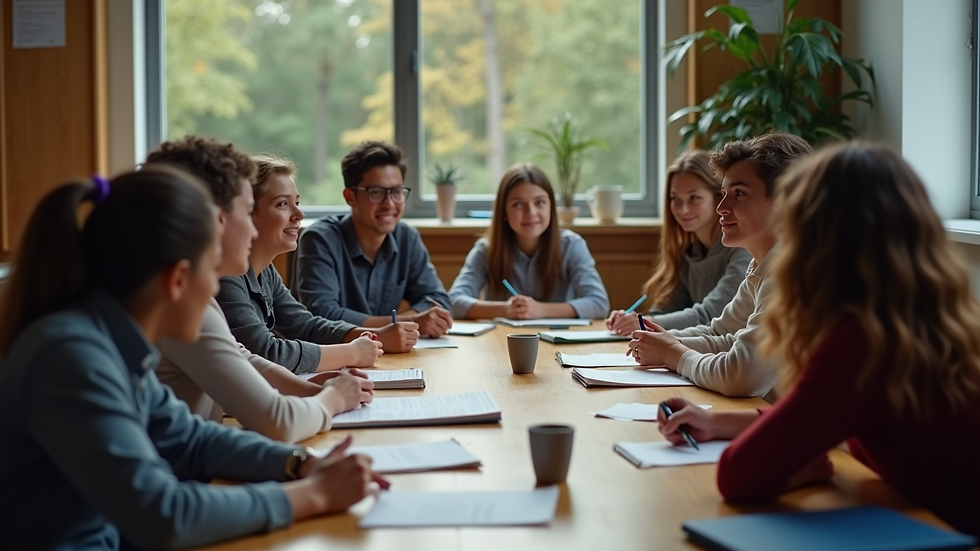Enhancing Youth Confidence Through Leadership Skills
- GUYDA

- Sep 19, 2025
- 4 min read
Building confidence in young people is essential for their success and well-being. One of the most effective ways to foster this confidence is through the development of youth leadership skills. These skills empower young individuals to take initiative, communicate effectively, and make decisions that positively impact their communities. In this post, I will explore how youth leadership skills can enhance confidence, provide practical examples, and offer actionable recommendations for nurturing these abilities.
The Importance of Youth Leadership Skills
Youth leadership skills are critical for personal growth and community development. When young people learn to lead, they gain a sense of responsibility and purpose. This process helps them overcome self-doubt and develop a positive self-image. Leadership skills include communication, problem-solving, teamwork, and decision-making. Each of these contributes to a young person’s ability to navigate challenges and seize opportunities.
For example, a young person who leads a community clean-up project learns to organize tasks, motivate peers, and communicate with local authorities. This experience builds confidence by showing tangible results of their efforts. It also encourages a mindset of proactive engagement rather than passive observation.
In addition, youth leadership skills prepare individuals for future roles in education, employment, and civic participation. They learn to express their ideas clearly, listen to others, and collaborate effectively. These competencies are valuable in any setting and increase a young person’s chances of success.

Developing Youth Leadership Skills Through Practical Activities
Practical activities are essential for developing youth leadership skills. Theory alone is insufficient; young people need opportunities to practice and reflect on their experiences. Here are some effective methods to cultivate these skills:
Group Projects - Working in teams teaches cooperation and conflict resolution. Assigning leadership roles within groups allows individuals to practice decision-making and delegation.
Public Speaking - Encouraging youth to speak in front of audiences builds communication skills and reduces fear of judgment.
Community Service - Engaging in service projects connects leadership to real-world impact and social responsibility.
Mentorship Programs - Pairing youth with experienced mentors provides guidance, feedback, and encouragement.
Workshops and Training Sessions - Structured learning environments introduce leadership concepts and techniques.
By participating in these activities, young people gain confidence through experience. They learn to trust their judgment and develop resilience when facing setbacks.

What is leadership skills training?
Leadership skills training is a structured approach to teaching young people the abilities they need to lead effectively. This training covers essential topics such as communication, goal setting, conflict management, and ethical leadership. It often includes interactive exercises, role-playing, and real-life scenarios to enhance learning.
One valuable resource for such training is the leadership skills training program offered by the Guyana United Youth Development Association (GUYDA). This program is designed specifically for Guyanese and Caribbean youth, focusing on their unique cultural and social contexts. It provides a supportive environment where young people can develop their leadership potential and build confidence.
Leadership skills training helps youth understand their strengths and areas for improvement. It encourages self-reflection and continuous growth. Participants learn to set realistic goals and develop strategies to achieve them. This process fosters a sense of accomplishment and self-efficacy.
Moreover, leadership skills training promotes inclusivity and respect for diversity. Young leaders learn to appreciate different perspectives and work collaboratively with people from various backgrounds. This skill is crucial in today’s interconnected world.

Strategies to Enhance Confidence Through Leadership Development
To maximize the impact of youth leadership skills on confidence, certain strategies can be implemented:
Create Safe Spaces: Provide environments where youth feel comfortable expressing themselves without fear of criticism.
Set Clear Expectations: Define roles and responsibilities clearly to avoid confusion and build accountability.
Encourage Reflection: After activities, facilitate discussions that allow youth to analyze their experiences and lessons learned.
Celebrate Achievements: Recognize both small and large successes to reinforce positive behavior and motivation.
Provide Continuous Support: Offer ongoing mentorship and resources to sustain growth beyond initial training.
For example, a community center might host monthly leadership workshops followed by group discussions. Participants could share challenges they faced and how they overcame them. This practice builds a supportive network and reinforces confidence.
Additionally, involving youth in decision-making processes within their communities gives them a real stake in outcomes. This involvement demonstrates trust and respect, further boosting self-esteem.
The Role of Community and Donors in Supporting Youth Leadership
Community members and donors play a vital role in fostering youth leadership skills. Their support enables organizations like GUYDA to offer quality programs and resources. Financial contributions help cover costs for training materials, venues, and expert facilitators.
Community involvement also provides opportunities for youth to engage in meaningful projects. Local leaders can mentor young people and create platforms for their voices to be heard. This collaboration strengthens social bonds and promotes a culture of leadership.
Donors interested in empowering Guyanese and Caribbean youth should consider supporting initiatives that focus on leadership development. Such investments yield long-term benefits by preparing the next generation to contribute positively to society.
By working together, communities and donors can create sustainable programs that nurture confident, capable young leaders.
Building a Brighter Future Through Youth Leadership
Investing in youth leadership skills is an investment in the future. Confident young leaders are better equipped to address social challenges, innovate, and inspire others. They become role models who encourage their peers to pursue growth and excellence.
Organizations like GUYDA are at the forefront of this effort, providing tailored programs that meet the needs of Guyanese and Caribbean youth. Through leadership skills training, young people gain the tools to succeed academically, socially, and culturally.
As these youth develop their leadership abilities, they contribute to stronger, more resilient communities. Their confidence enables them to advocate for positive change and create opportunities for others.
Supporting youth leadership development is essential for building a society where every young person can thrive and lead with purpose.
By focusing on practical experiences, structured training, and community support, we can enhance youth confidence through leadership skills. This approach empowers young people to realize their potential and make meaningful contributions to their communities.



Comments